Complete your selection
Artemisinin is a highly effective dietary supplement that helps cleanse the body, boost the immune system, fight infection and contain the proliferation of harmful cells, now available to buy at Supersmart. This carefully developed and 100% natural immunostimulant is essentially composed of the active substance artemisinin, the discovery of which earned the scientist responsible the Nobel prize in medicine.
Artemisinin is obtained from the plant Artemisia annua, or sweet wormwood, a herbaceous plant used in Chinese medicine for millennia for its ability to eliminate parasites, viruses and bacteria. Its active principle, artemisinin, was identified at the beginning of the 1970s and quickly became the key compound in medicines currently used to treat malaria. Highlighted more recently, artemisinin’s anti-cancer, anti-inflammatory and immunomodulatory benefits are attracting keen interest among the scientific community.
What exactly is sweet wormwood and its active principle artemisinin?
A crucial plant in Far Eastern pharmacopoeia
Sweet wormwood, or to give it its Latin and Chinese names, Artemisia annua and qing hao, is a glabrous and highly aromatic plant belonging to the large Asteraceae family. Originating from Asia (before spreading to Europe and Africa), it has been an important component of Chinese herbalism for more than 2000 years.
It was traditionally consumed in the form of a decoction, to treat fevers and parasitic infections, and in particular, to overcome malaria.
The rediscovery of sweet wormwood has had a significant impact in containing the spread of this highly dangerous tropical disease, which is caused by a parasite entering the bloodstream from a mosquito bite. It’s interesting to note that this identification of artemisinin actually came about … at the height of the Vietnam war (1).
Nobel prize awarded for the discovery of artemisinin
The ranks of the North Vietnamese army were being ravaged by malaria and they asked Mao Zedong’s China for help. In March 1972, inspired by Chinese traditional medicine, the Chinese professor Tu Youyou, put the virtues of Artemisia annua back in the spotlight when she succeeded in isolating its active principle: artemisinin. (2) (3)
Out of this came an effective remedy for malaria. Nowadays, the most widely used treatment for this disease is still produced using this substance or its derivatives. Its discovery went on to earn Professor Tu Youyou the Nobel prize for medicine in 2015.
How does this sesquiterpene lactone work in the body?
Let’s turn now to the nature and action of artemisinin. This molecule is actually a sesquiterpene lactone which has a functional group with two atoms of oxygen. They are linked by a peroxide bridge, to which its anti-malarial properties appear to be attributed. It’s thought this bridge acts by blocking the enzyme that ensures the parasite is provided with calcium thus impeding its growth in the body.
Another mechanism of action may lie in its ability to generate free radicals in the presence of iron, a trace-element abundant in both parasites and cancer cells. Once disseminated, it seems the free radicals eliminate the parasites by making their cell membranes explode. (4)
What are the benefits offered by the supplement Artemisinin?
Erecting a barrier against parasitic infections
Day after day, your body faces waves of infectious agents (bacteria, viruses, parasites...) all of which try to enter your system and take up residence, causing all sorts of illnesses. Artemisinin acts to optimise your immune system function and boost your resistance to these multiple external attacks.
In fact, artemisinin does more than just stop Plasmodium, the parasite responsible for malaria: it combats many other potential infections. In particular, it is recognised for treating schistosomiasis, also known as bilharzia, an endemic disease caused by hematophagous parasite worms called schistosomes. One study showed that taking artemisinin-based drugs reduced the number of these worms, the presence of their eggs and the parasite’s fertility in the body. (5)
Artemisinin also has a significant effect against helminths, the term for worm-like parasites, the best-known of which is tapeworm. Did you know that 1.5 billion people are infected with soil-transmitted helminths globally? A study from 2018 confirmed that “artemisinin (ART) and its derivatives are potentially effective medicines for treating various helminthic diseases important for public health”. The study was conducted on a wide range of helminths:
- Nematodes (Toxocara canis, Trichinella spiralis, Haemonchus contortus, Meloidogyne spp., Globodera rostochiensis and Xiphinema index).
- Cestodes (Echinococcus spp. and Taenia crassiceps).
- Trematodes (Echinostoma spp., Fasciola Clonorchis sinensis, Opisthorchis viverrini, Paragonimus westermani, Heterophyes heterophyes and Paramphistomum microbothrium).
- And parasites monogenea (Dactylogyrus and Gyrodactylus).(6)
Another study from 2017 found that “artemisinin and its derivatives may constitute good alternatives for the treatment of protozoal infections”. (7)
Boosting the body’s ability to resist bacteria
As well as constituting a barrier against a large number of parasites, artemisinin has also shown an impressive ability to fight bacterial infections.
Let’s take the example of a well-known bacterial disease: Lyme disease, also known as Lyme borreliosis. Transmitted by a bite from a contaminated tick, usually during a walk in a forest, Lyme disease can cause pain and fever as well as neurological, respiratory and eye problems. A 2016 study showed that taking anti-malarials such as artemisinin produced better results than the antibiotics currently used to treat Lyme disease. (8) (9)
A study by Professor Yesha Patel and his team highlighted the fact that this active substance was also able to combat another well-known bacterial disease, tuberculosis. Tested in in vitro culture, artemisinin was shown to act synergistically with some medications against the bacilli Mycobacterium bovis and Mycobacterium tuberculosis H37Ra. By increasing peroxide levels in treated cells, artemisinin caused the membranes of attacking bacteria to disintegrate significantly reducing their numbers. (10)
Stimulating the immune system against viruses
It’s also significant that this active principle has been shown to be effective at fighting viruses. In a study from November 2018, the German researcher Thomas Effert observed there was good in vitro and in vivo evidence of the positive effects of artemisinin and its derivatives against certain DNA viruses, namely:
- Cytomegalovirus (CMV).
- Human herpes virus type 6 (HHV-6) and herpes simplex virus (HSV-1 et HSV2).
- Epstein-Barr virus (EBV).
- Hepatitis B virus (HBV).
- And to a lesser extent, polyomaviruses and papillomavirus. (11)
Artemisinin supports the body’s fight against its own corrupt cells
In terms of cleansing the body, Artemisinin not only protects you from external agents: this high-quality nutritional supplement also helps to get rid of your own corrupted cells .
What’s the mechanism involved here? As previously mentioned, it seems artemisinin naturally generates free radicals which destroy diseased cells and prevent them from multiplying. This has the advantage of being a specifically targeted action which does not affect healthy cells. (12) (13)
A number of scientific studies have confirmed artemisinin’s effects on cancer cells and tumours:
- A study from 2017 demonstrated that artemisinin offers powerful anti-cancer properties.(14)
- A study from the same year confirmed that this substance inhibited the proliferation of cancer cells in the gall bladder.(15)
- Another study found that artemisinin and its derivatives were able to suppress TGF-β signalling in vivo, which neutralises fibroblasts associated with cancer and triggers inhibition of metastasis in breast cancer (16)
- With regard to lung cancer, artemisinin has been shown to suppress the progress of lung tumours by inhibiting the Wnt/β-catenin pathway. (17)
- Other studies have highlighted cytotoxic effects against a wide range of cancers, in vitro and in vivo.(18) (19)
- We should also mention additional studies which have identified all the ways in which artemisinin eliminates tumours: breaking down cancer cells’ DNA, inducing apoptosis, autophagy, necroptosis, oncosis, inhibition of the cell cycle in phase G0/G1, inhibition of angiogenesis... (20) (21)
Note: during this temporary phase of elimination of harmful cells, it’s best to avoid taking antioxidant supplements which may hinder the oxidative effect of artemisinin.
Artemisinin’s anti-inflammatory and immunomodulatory action
A study from 2015 reported that artemisinin “has powerful anti-inflammatory and immune-regulatory properties”, which can balance its immune-stimulant character. (22)
These anti-inflammatory effects have been attributed to the inhibition of multiple receptors: Toll-like receptors, Syk tyrosine kinase, phospholipase Cγ, etc (23)
Taking the example of gout, the inflammatory condition caused by excess uric acid in the blood, a study in September 2019 showed that artemisinin was able to inhibit activation of the NLRP3 inflammasome (by suppressing interaction between NLRP3 and the NEK7 protein), and thus ease this painful problem. (24)
Another study revealed that artemisinin exerts a positive effect on neuroinflammation: regulating the inflammatory process within the central nervous system, eliminating systemic inflammation, relieving intestinal inflammation ... (25)
According to researcher Ives Charlie-Silva, artemisinin “is able to modulate the immune response by regulating cell proliferation and the release of cytokines”. The active principle in sweet wormwood thus helps calm excessive auto-immune responses. (26)
What is in Artemisinin
Any questions?
Our team of nutrition experts and scientists has the answers.
Formulated to act as a biological shield against infection, the nutritional supplement Artemisinin contains only natural ingredients.
Its main ingredient, artemisinin, is obtained from the aerial parts of Artemisia annua. Also known as sweet wormwood, this plant was widely used in traditional Chinese medicine, as well as being very popular in Europe, as far back as Antiquity: it was recognised for its ability to strengthen the body, relieve digestive problems and painful periods, and act as a worming treatment … In this product, the artemisinin extract is standardised to 98% to ensure optimal efficacy.
This immunostimulant is completed and stabilised by acacia gum (a sap exudate from the African tree Acacia senegalensis) and white rice flour.
This product’s capsules are made of pullulan, a natural polysaccharide obtained by fermenting tapioca or corn. Pullulan contains no animal ingredients and provides an excellent barrier to oxygen, helping to preserve the integrity of the capsule’s ingredients. It is also an eco-friendly alternative to synthetic materials.
It couldn’t be simpler: just take two capsules a day. It is distributed throughout the body and brain very rapidly. It is also very well tolerated by the body as long as you stick to the recommended dose.
Remember, though, it is always advisable to consult your doctor before beginning a course of dietary supplements. Also avoid taking artemisinin during pregnancy.
To get the maximum benefits from Artemisinin supplementation, you should also try to:
- Take regular exercise, as it reduces the risk of infection and facilitates healing (27).
- Look after your gut microbiota which plays a key role in your defences by taking probiotics (such as Probio Forte™) (28).
- Improve the quality of your sleep in order to reduce your susceptibility to infections and lower your inflammation (29).
- Reduce your stress levels, as excessive and prolonged production of cortisol, the stress hormone, plays a part in weakening your natural defences (30).
- And supplement with magnesium (for example, by taking OptiMag) to reduce fatigue and, again, boost your immunity. (31)
Buy Artemisinin to support the immune system.
february 7 2025
Helping with hippuric acid problems
september 25 2024
I used it permantly, so I am satisfied. I do not need recommend this product every month!
march 22 2024
Superp quality and very impotant product!
june 12 2023
indispensable
september 1 2022
superlatif!
Need help?
You may also like

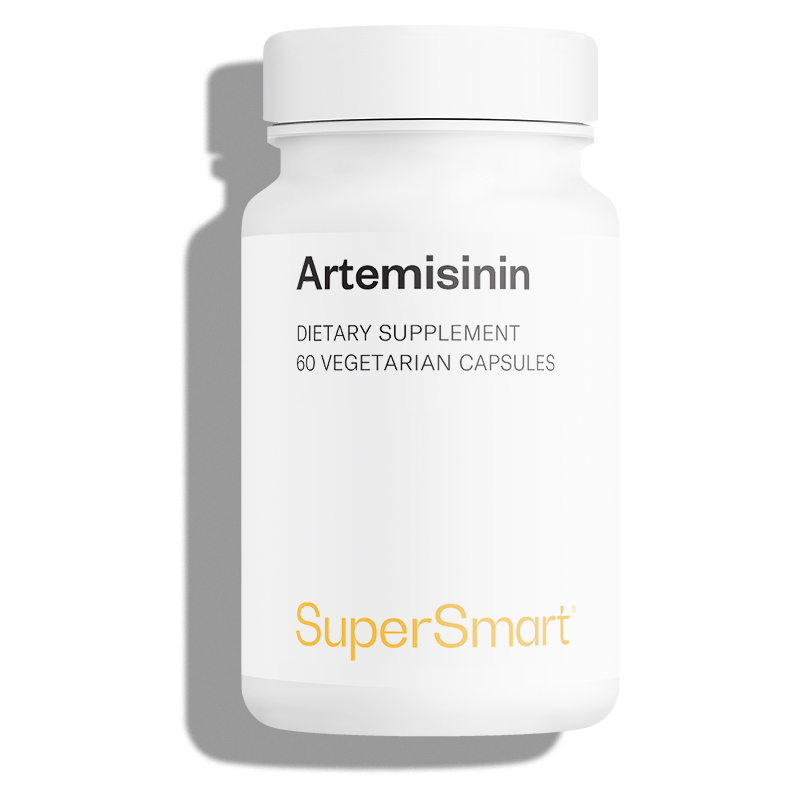
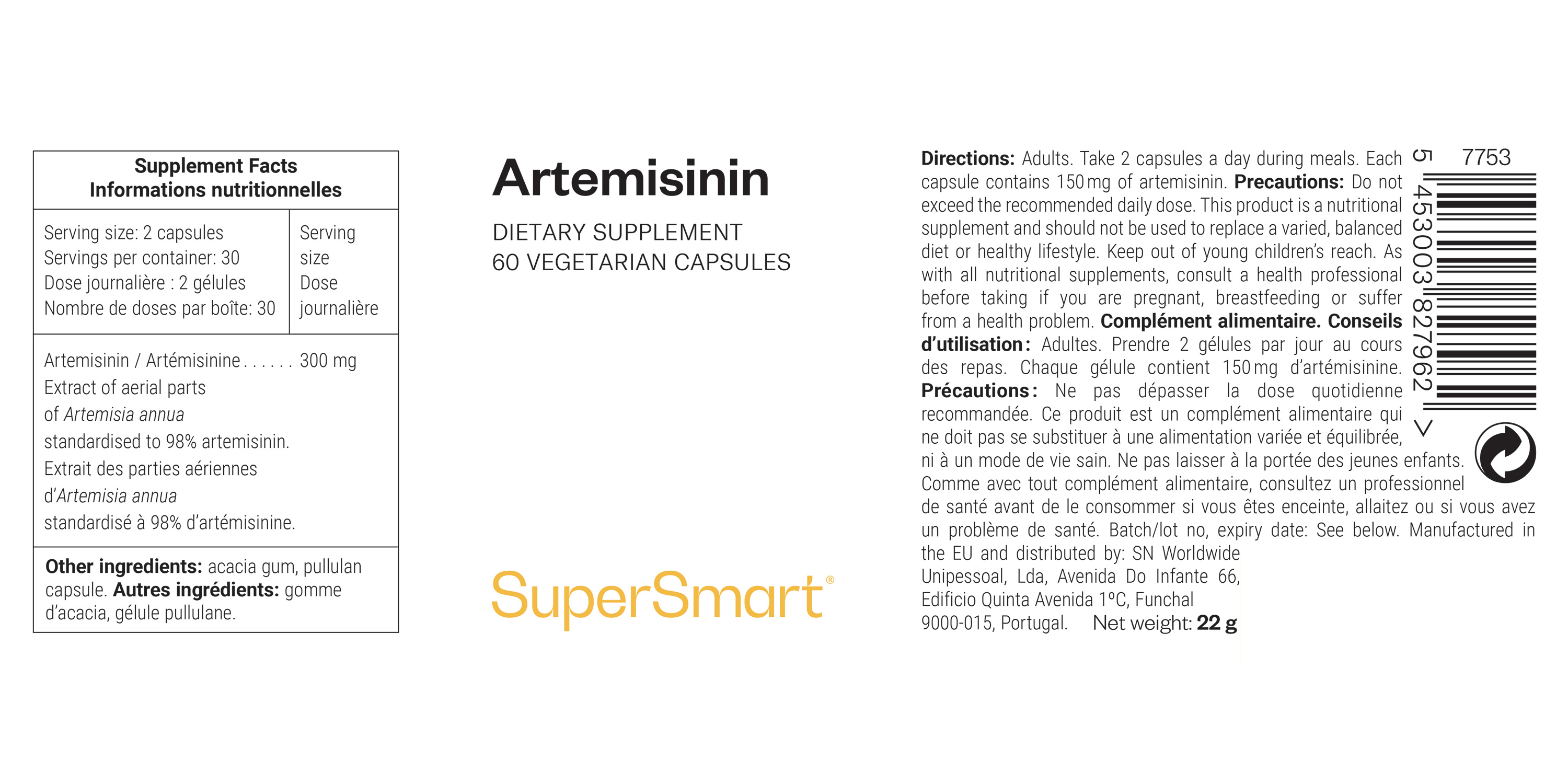
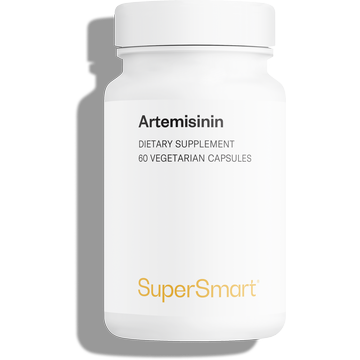
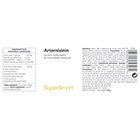

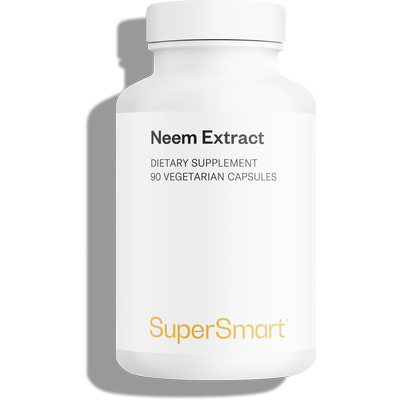
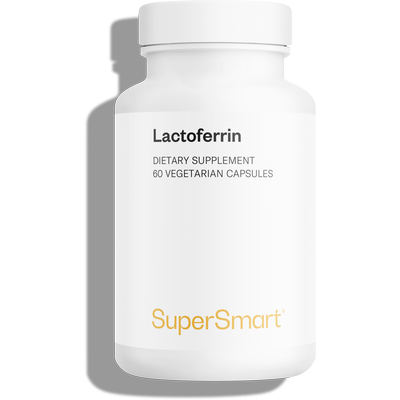
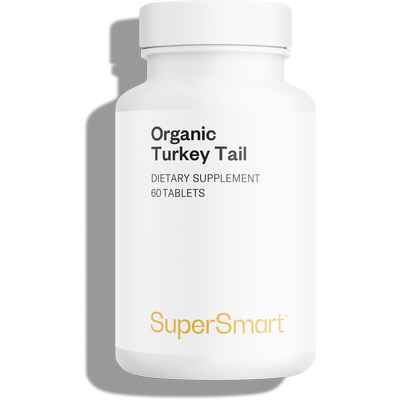
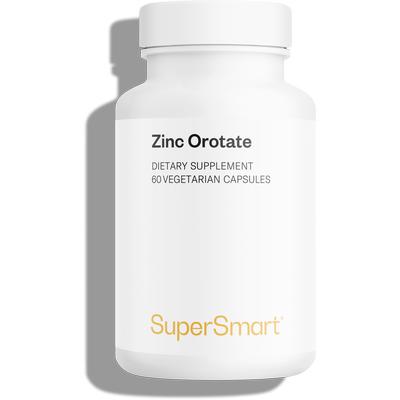
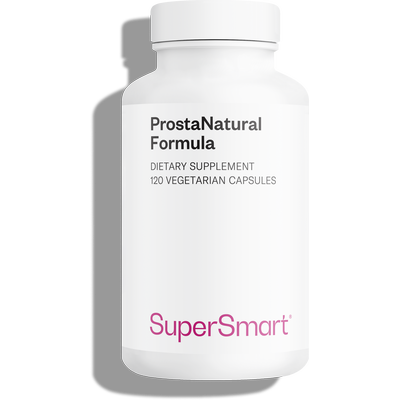
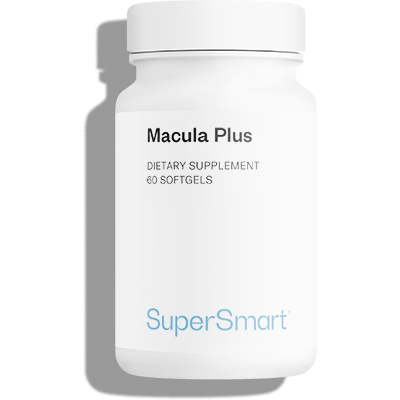
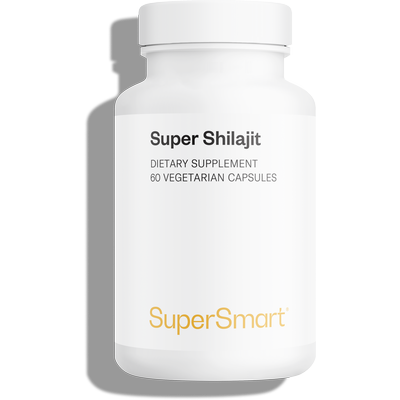
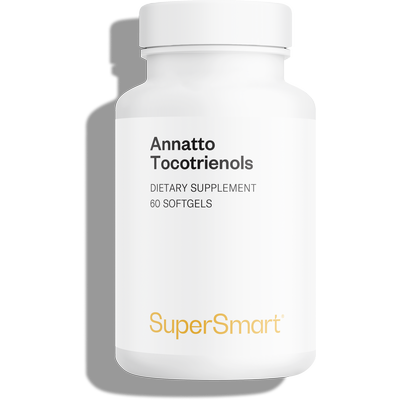

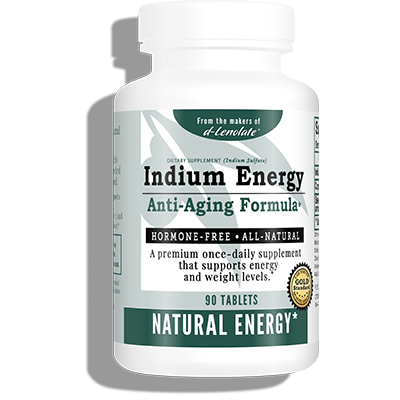
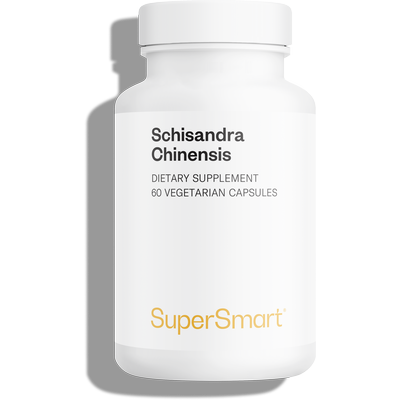
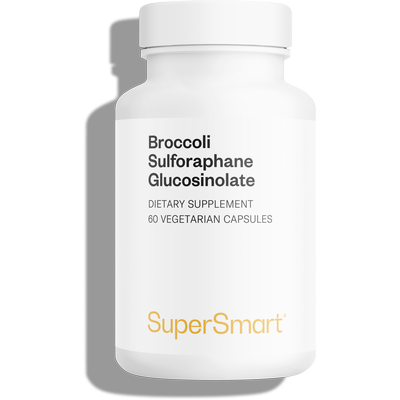
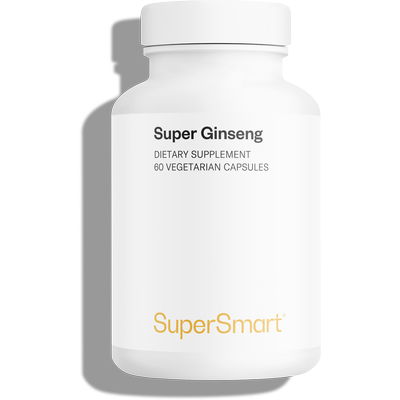
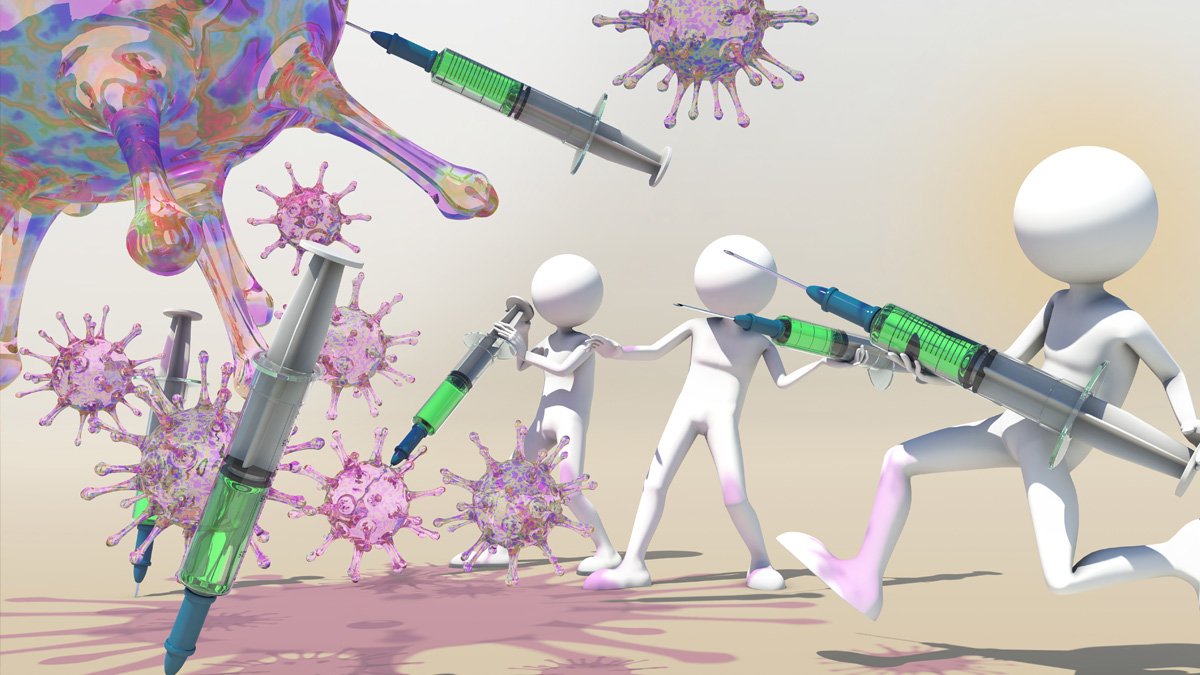
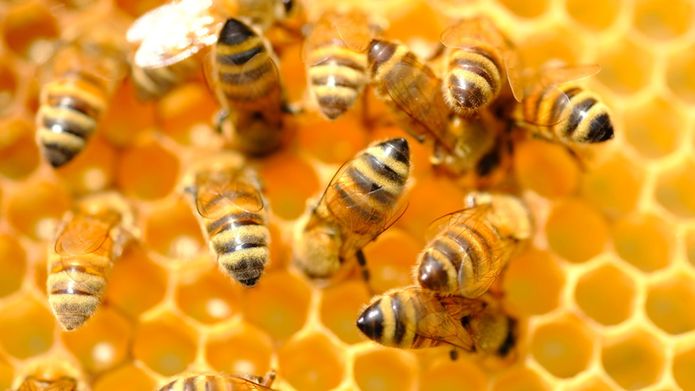

Sehr geehrte Frau Prenninger,
vielen Dank für Ihr positives Feedback zu Artemisinin. Ihre Zufriedenheit ist unsere Priorität, und wir freuen uns, dass Sie unsere Produkte und Dienstleistungen schätzen.
Wir hoffen, Sie auch weiterhin bei Ihren Entscheidungen für Ihre Gesundheit und Ihr Wohlbefinden begleiten zu dürfen.
Mit herzlichem Dank,
Ihr Supersmart-Team